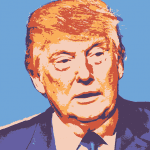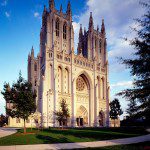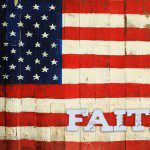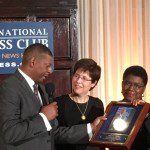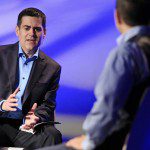(Note: This is part of a series of posts that highlight some of the best news and commentary on the role of faith in the 2016 election. See my previous posts from earlier in the summer.)
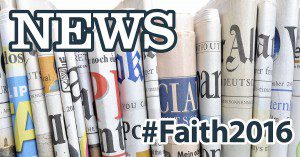
I’m not sure who started talking about it first, but in August, everyone was talking about Trump’s Catholic problem. The pieces below reflect the main facts, arguments, and explanations. But this list is certainly not exhaustive.
- Professor Michael J. New had a piece at National Review Online shortly after the Pew survey came out. New credits Pew with asking survey respondents not only about their religious affiliation, but also about frequency of worship attendance. This is very important, because we often see significant differences in vote choice among coreligionists based on how devout they are. (I guess we could have a debate about the extent to which church attendance is a good proxy for religious devotion, but I am inclined to think it is. In any event, self-reported church attendance is an efficient way for pollsters to capture a meaningful measure of religious devotion.) New’s piece points to the fact that the “Catholic” label is pretty meaningless unless it can be broken down. Everyone breaks it down by race, income, educational attainment, etc. But frequency of attendance matters. And it might especially matter this election.
- In a commentary for Religion News Service, John Gehring points to Trump’s dramatically different approach to migration than what the Catholic Church teaches. (Though this could be said of almost all the GOP presidential aspirants.) I especially commend the latter third of Gehring’s piece, which succinctly lays out reasons why Catholicism’s adherents in particular might be turned off by Trump:
Trump’s campaign of personality surely attracts some voters who are wowed by the spectacle and see him as a fearless truth teller in an age of political correctness. But his brash oratorical style and often-simplistic arguments don’t sit well with experiences Catholics have with the quiet beauty of Catholic liturgy, or a Catholic intellectual tradition that for centuries has underscored the synthesis of faith and reason.
Catholic social teaching integrates the study of philosophy, history, science and theology. It’s a thinking religion. For Trump, his my-way-or-the highway pronouncements often seem to view facts and argument as distractions. For Catholics, our moral and intellectual tradition asks us to consider the complexity of “both-and” conclusions rather than the comfort of “either-or” false choices. Catholicism is intellectually rigorous and built on centuries of tradition that still leave room for nuanced debate, a hallmark of education at Catholic colleges and universities across the country.
- At The Washington Post‘s blog for political junkies (“The Fix”), Aaron Blake analyzed new data from the Public Religion Research Institute showing that Trump is absolutely tanking with white Catholics compared to Romney. Everyone who has written about Trump’s Catholic problem since this piece was published has cited it. Read it.
- Ed Kilgore, who you should always read, has a concise piece at New York Magazine that asks an important follow-up question: How bad is Trump’s Catholic problem? Kilgore notes that a basic error in the analysis probably led to the screaming Washington Post headline. (Blake compared the 2016 national sample surveys to 2012 exit polls, which are less accurate and typically do not have any measures of religiosity other than self-reported affiliation.)
- In his National Catholic Reporter column, Father Thomas Reese offers a thoughtful response to the recent spate of media attention to Catholic voters. I commend the entire analysis, even if I would push back a bit on the idea that the media have ignored Catholic voters this cycle.
A lot of other people have written about this. Let me know what women and ethnic minority journalist are writing about this issue. I want to lift up other voices.
(Note: This is part of a series of posts that highlight some of the best news and commentary on the role of faith in the 2016 election. See my previous posts from earlier in the summer.)


